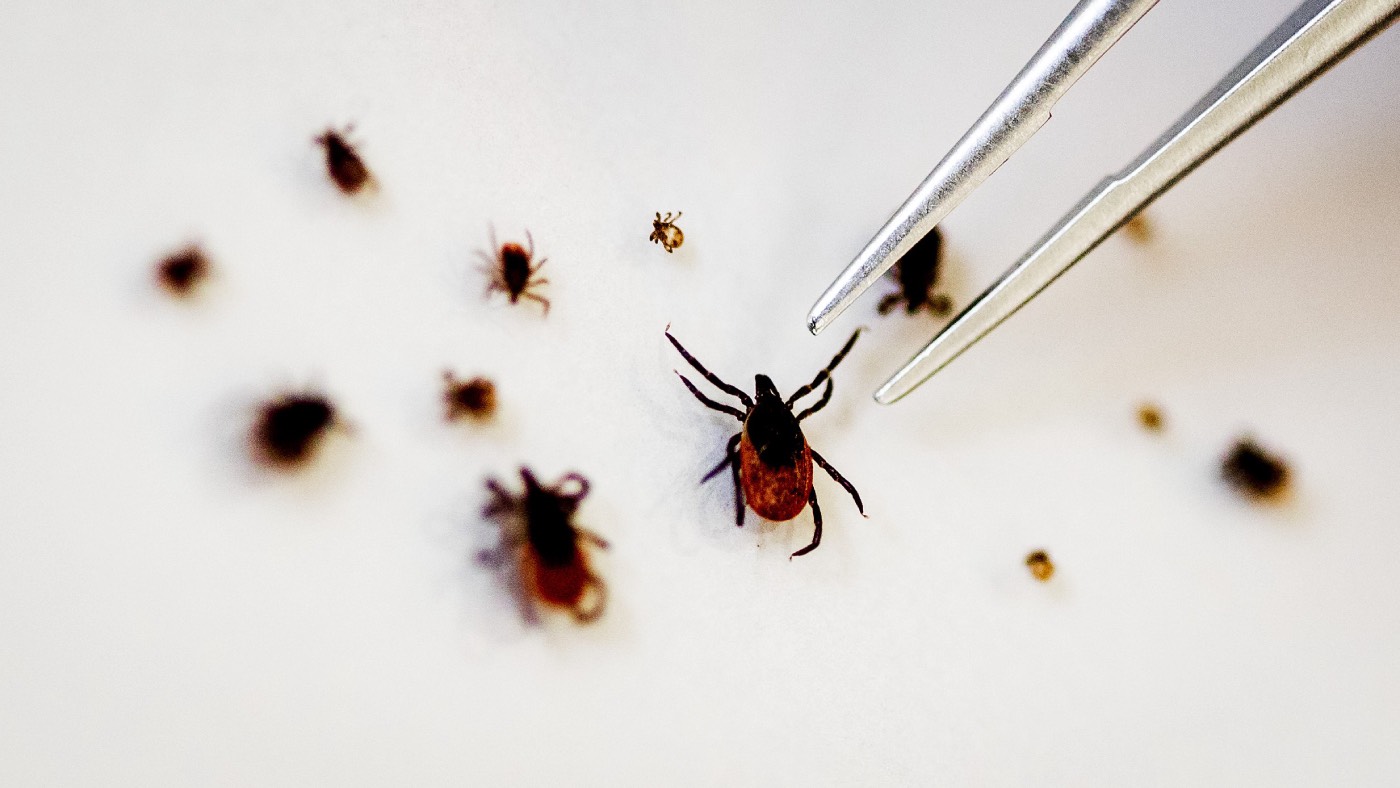Tick-borne encephalitis virus: what are the symptoms?
Potentially fatal disease has been detected in the UK for the first time

A free daily email with the biggest news stories of the day – and the best features from TheWeek.com
You are now subscribed
Your newsletter sign-up was successful
A potentially fatal disease spread to humans through tick bites has been discovered in the UK for the first time.
Public Health England (PHE) has confirmed that tick-borne encephalitis (TBE) virus has been detected on the Hampshire-Dorset border and in Thetford Forest, on the border between Suffolk and Norfolk. It is already present in mainland Europe and parts of Asia.
A PHE spokesperson said the risk to the general public is “currently assessed to be very low” but added that “further work” was needed to determine the extend of the problem.
The Week
Escape your echo chamber. Get the facts behind the news, plus analysis from multiple perspectives.

Sign up for The Week's Free Newsletters
From our morning news briefing to a weekly Good News Newsletter, get the best of The Week delivered directly to your inbox.
From our morning news briefing to a weekly Good News Newsletter, get the best of The Week delivered directly to your inbox.
Sky News says the number of infected ticks has been on the rise as a result of of increasing deer populations. Ticks also “live on other animals and in undergrowth”, and the infected parasites “could have arrived in the UK on migratory birds”, the broadcaster adds.
So how serious is the virus and how can you minimise the risk of becoming infected?
How is it transmitted?
The European Centre for Disease Prevention and Control says the TBE virus is transmitted “by the bite of infected ticks, found in woodland habitats”.
A free daily email with the biggest news stories of the day – and the best features from TheWeek.com
People who spend a lot of time outdoors, particularly in woodland areas, are more at risk. Humans may also become infected by consuming infected unpasteurised dairy products.
What are the symptoms?
The first phase of TBE includes flu-like symptoms: fever, nausea, fatigue, headache and muscular pain.
This is followed by a second phase that can bring on inflammation of the membrane that surrounds the brain and spinal cord, or inflammation of the brain. The effects are similar to the symptoms for meningitis.
If TBE begins to affect the brain and central nervous system, it can occasionally go on to kill victims.
Permanent or long-standing neuro-psychiatric effects are found in 10% to 20% of those infected.
–––––––––––––––––––––––––––––––For a round-up of the most important stories from around the world - and a concise, refreshing and balanced take on the week’s news agenda - try The Week magazine. Get your first six issues for £6–––––––––––––––––––––––––––––––
How is it treated?
There is no specific treatment for the virus, but the risk of catching it can be reduced.
Immunisation using safe and effective vaccines against the TBE virus are recommended for people who live in high-risk areas or who regularly visit forests and grasslands in potentially affected regions.
Those who may be at risk are also advised to use insect repellent on exposed skin, their socks and on their trouser legs, and to wear protective clothing with long sleeves and long trousers tucked into socks or boots.
Dairy products in TBE risk areas should also be avoided, particularly if unpasteurised.
On a reassuring note, the NHS website says: “Not all ticks spread TBE. Even if you’re bitten, the risk of getting seriously ill is low.”
-
 Why is the Trump administration talking about ‘Western civilization’?
Why is the Trump administration talking about ‘Western civilization’?Talking Points Rubio says Europe, US bonded by religion and ancestry
-
 Quentin Deranque: a student’s death energizes the French far right
Quentin Deranque: a student’s death energizes the French far rightIN THE SPOTLIGHT Reactions to the violent killing of an ultra-conservative activist offer a glimpse at the culture wars roiling France ahead of next year’s elections.
-
 Secured vs. unsecured loans: how do they differ and which is better?
Secured vs. unsecured loans: how do they differ and which is better?the explainer They are distinguished by the level of risk and the inclusion of collateral